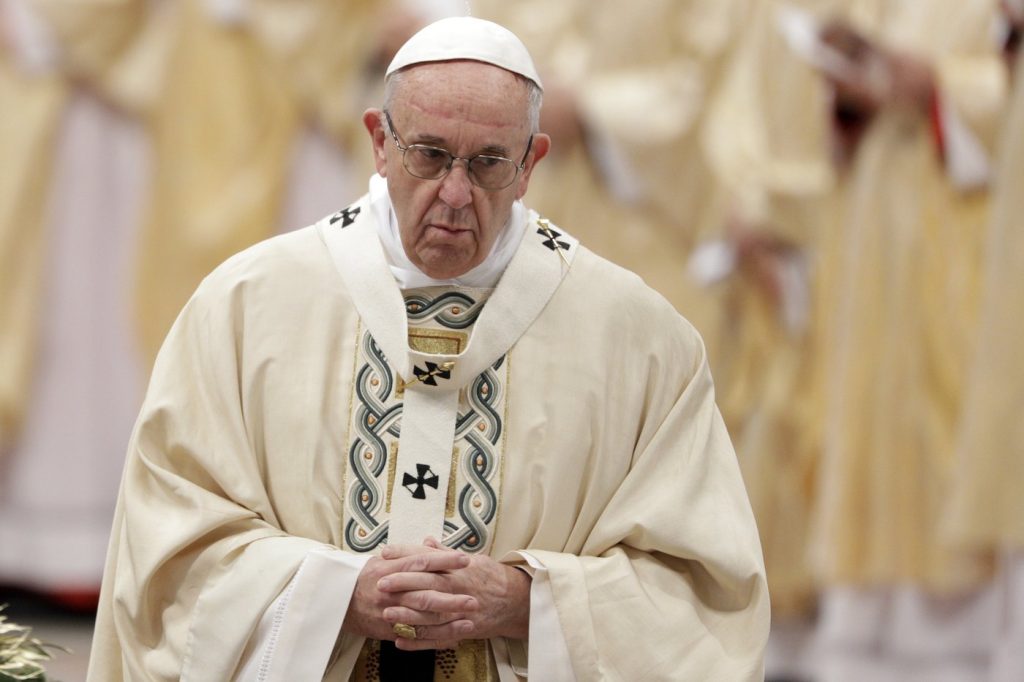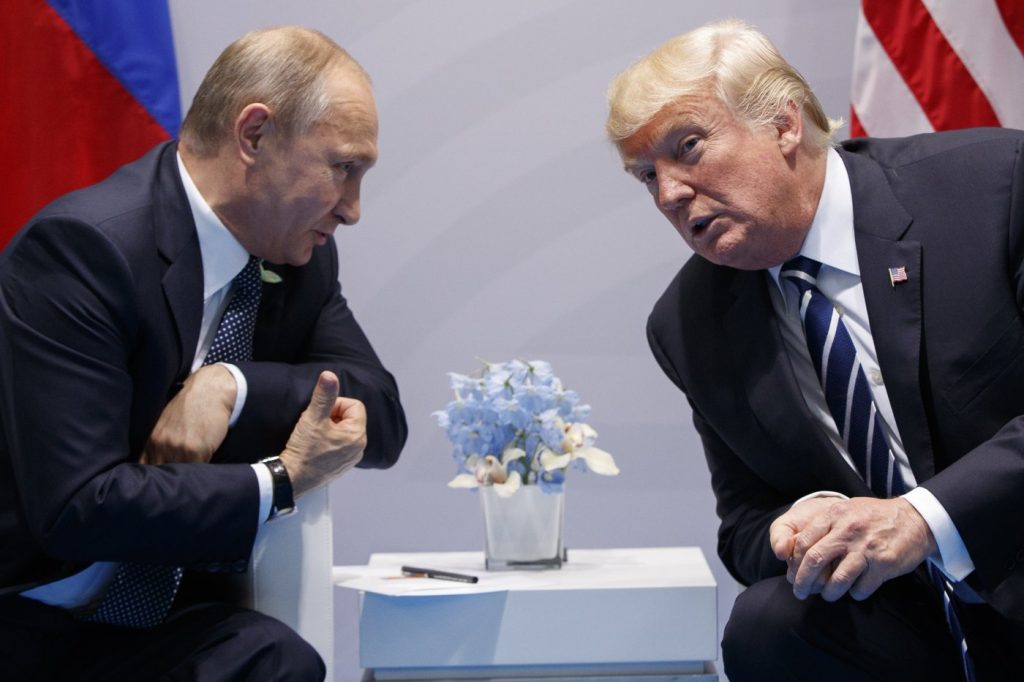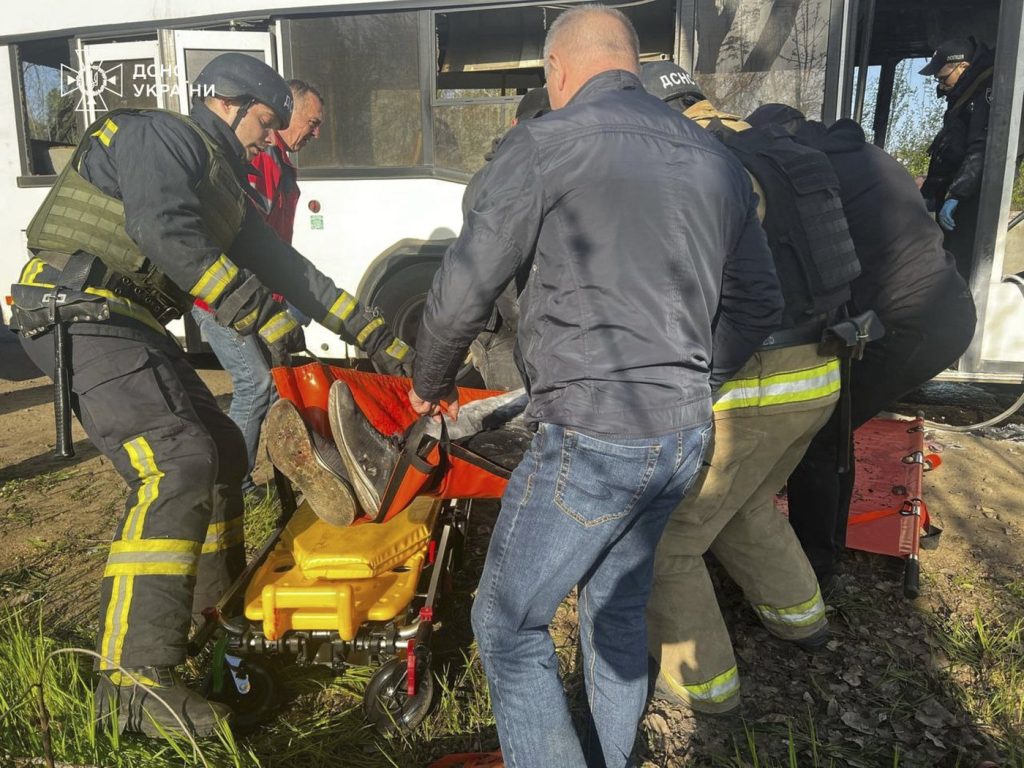VATICAN CITY (AP) – In a surprising turn of events, a statement made by Pope Francis during his 2018 visit to Chile became a pivotal moment in his papacy, igniting a crisis that ultimately led to unprecedented accountability for clergy sexual abuse within the Catholic Church. While addressing the accusations against Chilean Bishop Juan Barros, who was alleged to have covered up abuses committed by the notorious pedophile Fernando Karadima, Francis vehemently defended Barros, claiming, "not one shred of proof against him. It’s all slander." This declaration resonated deeply within Chile, where the church was beginning to confront its painful past relating to sexual abuse.
Following widespread backlash, Francis did not double down on his stance; instead, he initiated an investigation into the Chilean church, acknowledging he had been misled. He subsequently apologized to the victims he had earlier discredited and accepted the resignations of the entire Chilean episcopal conference. This moment marked a significant shift in the approach to handling sexual abuse within the church.
Initially, when Francis ascended to the papacy in 2013, there were concerns about his understanding of sexual abuse issues, particularly as he had never previously dealt with cases while serving as the archbishop of Buenos Aires. Despite establishing a sex abuse commission early in his papacy, it suffered a decline in influence over the years. Notably, a central recommendation for establishing a tribunal to address bishops covering up abuse failed to materialize.
During his controversial visit to Iquique, Chile, Francis faced intense scrutiny regarding his support for Bishop Barros, who had connections to Karadima and was accused by his victims. After being pressed for clarification while on a flight back to Rome, Francis recognized the gravity of the situation and commissioned an investigation into the Chilean church. His subsequent revelation of being misled by advisors such as Chilean Cardinal Javier Errazuriz culminated in a personal apology to victims, including Juan Carlos Cruz, who later formed a friendship with the pope.
Francis later described 2018 as a year of awakening or "conversion" in his understanding of abuse, attributing his new perspectives to journalists, including those from The Associated Press. He acknowledged the significant impact of these revelations, saying that it was then he recognized the pervasive corruption present among many bishops.
As Francis moved forward from the Chilean scandal, another significant event emerged when he removed Cardinal Theodore McCarrick from his position in July 2018. Investigations found credible allegations against McCarrick regarding misconduct with a teenage altar boy, as well as accusations from former seminarians detailing further abuse. Despite widespread knowledge of his behavior, McCarrick had ascended the ranks within the Catholic Church.
The abrupt removal of McCarrick could have positioned Francis positively in the narrative, marking a departure from the previous tenure of St. John Paul II, who had promoted McCarrick despite his notoriety. However, this victory was overshadowed when Archbishop Carlo Maria Vigano accused Francis of being complicit in covering up McCarrick's abusive history. Vigano's 2018 denunciation claimed he had warned Francis of McCarrick's past at the inception of his papacy, urging for accountability, which Francis allegedly disregarded.
In response to the ensuing crisis, Francis authorized a two-year investigation into McCarrick, acknowledging the need for accountability among the church hierarchy. The investigation revealed a pattern of neglect by previous church leaders regarding multiple allegations against McCarrick. Francis rallied to reinforce accountability by meeting with heads of bishops' conferences worldwide in 2019, emphasizing the urgency to combat abuse within the institution.
In a move to address the potential for future cover-ups, Francis amended church laws to abolish the "pontifical secret" surrounding abuse cases and mandated that church personnel be required to report allegations internally. He also approved the processes for investigating bishops who were complicit in protecting abusive priests, aiming to dismantle the culture of impunity surrounding the clergy.
Despite progress, criticisms regarding Francis’ handling of abuse cases persisted. The case of Argentine Bishop Gustavo Zanchetta, who was convicted for abusing seminarians, and the controversial history involving Father Julio Grassi continue to cast a shadow on Francis' record. Critics argue that to solidify lasting accountability, Francis must confront the harm caused during his time in Argentina.
Such challenges highlight the complexities faced by Pope Francis in addressing systemic issues of clerical abuse and the need for continued reforms within the Catholic Church.












